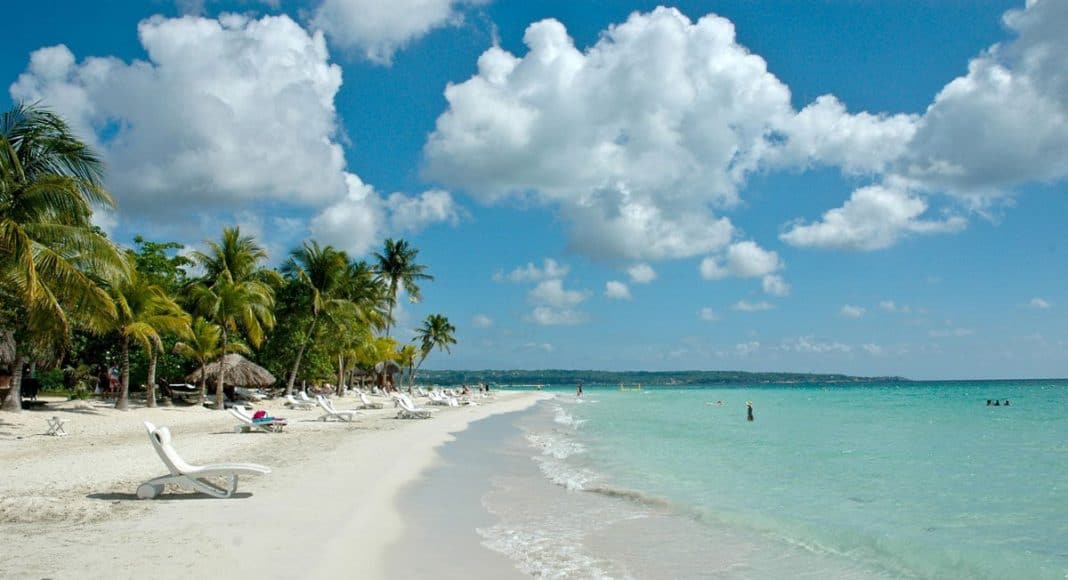Over the weekend, I attended CanEx Jamaica in Montego Bay. The event focused on the business and policy of cannabis in Jamaica and abroad. Jamaica decriminalized cannabis in 2015, imposing a fine for possession of less than two ounces of cannabis rather than possible jail time. Jamaica also has legalized cannabis for medical use, but is still in the process of implementing a regulated program.
Jamaica is facing challenges in regulating a plant that has long been celebrated in Jamaican culture despite legal prohibition. Ganja, as it is known on the Island, has deep cultural and religious significance. It is a sacred herb in the Rastafarian religion. Its religious and recreational use on the island has been widespread for years. As a result, many Jamaicans are not excited about it being regulated. I went to this event for two reasons. One, because Hilary Bricken, our lead cannabis lawyer out of our Los Angeles office would be speaking there. And two, because our cannabis practice has always been an international one, and that has been accelerating in the last few months as Barcelona, Spain, (where we have an office) continues to liberalize.
Dr. Jalani Adwin Niaah, a professor at the University of the West Indies at Mona and Rastafarian, gave a presentation on Rastafarian Dispensing and Advocacy. He noted an increased interest in ganja from local business leaders after it was decriminalized. He fears though that commercialization of Jamaica’s medical cannabis will leave Rastafarians behind and cannabis as a sacrament will become marginalized. Dr. Niaah suggested Rastafarian’s hosting “herb camps” where they could grow and dispense ganja for religious purposes while also providing guidance to Jamaicans and visitors who want to use ganja for healing and wellness. Dr. Niaah proposed these camps would give Rastafarians a place in Jamaica’s regulated cannabis market. Jamaican law allows cannabis for religious purposes, but it is not clear these sorts of camps would qualify under this exemption.
Hilary Bricken from our office moderated a panel on cannabis policy that included Florida attorney Michael Minardi, entrepreneur Sidney Himmel, Dr. Lorenzo Gordon of Jamaica’s Ministry of Health, and Greg Douglas, CEO of Jamaica’s Cannabis Licensing Authority.
Dr. Gordon and Mr. Douglas provided insight into the challenges Jamaica faces as two of its regulatory bodies work together to establish Jamaica’s medical cannabis scheme. The Ministry of Health regulates cannabis processing, strains, and products. It looks at the scientific side of cannabis, studying the percentage of CBD and THC in each strain. This Ministry also requires a microbiological analysis of each product and provides training for physicians who wish to recommend cannabis. The Cannabis Licensing Authority focuses on location, security, and cultivation. As the title suggests, it also will eventually provide licenses to cultivators and dispensaries.
-
Related Story: How And Where All Those Marijuana Slang Terms Came From
Mr. Douglas expressed the need for the two agencies to work together to send a unified message and provide a consistent process for applicants hoping to obtain a cannabis license. He also acknowledged the importance of cannabis in Jamaica saying “in Jamaica, ganja is cultural, not just a matter of money.” Mr. Douglas maintains that the emotional impact of ganja in Jamaica must be taken into account in creating a regulated industry.
The elephant in the room was the impact United States Government policy has had and will continue to have on Jamaica’s cannabis regime, especially considering the Trump administration has been hostile to cannabis. Both Jamaica and the US have entered into treaties prohibiting the manufacture and distribution of cannabis and other drugs. The US wields significant influence over international trade and could force its will on a small nation like Jamaica. At one point in the panel discussions, Hilary asked whether Jamaican government officials see the US as a bully. Both Jamaican officials gave diplomatic answers, acknowledging they are aware of the United State’s position on the subject and how it is necessary to “consider” the international environment when implementing Jamaica’s regulatory regime.
Though over half the states in the US have legalized medical cannabis and eights states (plus Washington DC) allow cannabis for recreational use, the United States is still viewed internationally as somewhat of a drug law dinosaur with sharp teeth. Many of the speakers and attendees talked of how Canada and Israel (and to a lesser extent Uruguay and Spain) are model nations for cannabis research and policy. Dr. Gordon stated he hoped Jamaica could be an international leader in cannabis as well. See Marijuana Legalization: The International Edition
Daniel Shortt is an attorney at Harris Bricken, a law firm with lawyers in Seattle, Portland, Los Angeles, San Francisco, Barcelona, and Beijing. This story was originally published on the Canna Law Blog.


